Key Takeaways
- Understand Your Retirement Account: Familiarize yourself with the specifics of your 401(k) or IRA, including withdrawal options and potential penalties, to make informed decisions about using these funds for a home purchase.
- Evaluate Your Financial Situation: Assess your overall financial health and future retirement needs before deciding to use retirement funds for buying a home. This ensures you don’t compromise your long-term financial security.
- Seek Professional Advice: Consulting with a financial advisor and real estate expert is crucial. They can provide personalized advice, helping you understand the tax implications and long-term impact on your retirement savings.
- Consider Long-Term Impacts: Weigh the immediate benefits of accessing funds for homeownership against the potential reduction in your retirement savings and compound growth. This balance is essential for making a sound financial decision.
- Leverage Expert Guidance: Utilizing the expertise of professionals like those at Brickfront Properties and Construction can offer valuable insights and assistance, ensuring you navigate the process smoothly and effectively.

For many first-time homebuyers, navigating the complexities of purchasing a home can be daunting. However, one often-overlooked asset that can significantly ease this process is a retirement account. This guide aims to explore how leveraging a retirement account can help you buy a home, providing you with a strategic advantage in the competitive real estate market. At Brickfront Properties and Construction, we specialize in helping clients make informed decisions about their real estate investments, and using retirement funds for home purchases is a smart strategy we highly recommend.
Understanding Retirement Accounts

Retirement accounts, such as 401(k)s and IRAs, are primarily designed to help you save for your golden years. These accounts offer tax advantages, making them an attractive savings vehicle. However, they also have provisions that allow you to access funds for significant life events, such as buying your first home.
Types of Retirement Accounts
- 401(k) Plan: An employer-sponsored plan that allows employees to save for retirement on a tax-deferred basis. Employers often match contributions, which can boost savings.
- Traditional IRA: An individual retirement account that offers tax-deferred growth. Contributions may be tax-deductible, and withdrawals in retirement are taxed as income.
- Roth IRA: Contributions are made with after-tax dollars, but qualified withdrawals in retirement are tax-free. Contributions (but not earnings) can be withdrawn at any time without penalty.
Using a 401(k) to Buy a Home

While 401(k)s are intended for retirement, the IRS allows penalty-free withdrawals for first-time home purchases under certain conditions.
401(k) Loan Option
One way to access 401(k) funds is through a loan. Most plans allow you to borrow up to 50% of your vested balance or $50,000, whichever is less. Here are some key points:
- Repayment: Typically, you have five years to repay the loan, with payments automatically deducted from your paycheck.
- Interest: You pay interest on the loan, but it goes back into your account, effectively paying yourself.
Hardship Withdrawal
If your 401(k) plan permits, you can take a hardship withdrawal for a first-time home purchase. However, this option should be a last resort due to potential taxes and penalties:
- Penalty: Normally, a 10% early withdrawal penalty applies if you’re under 59½, but this may be waived for first-time homebuyers.
- Taxes: Withdrawals are subject to ordinary income tax.
Using an IRA to Buy a Home

IRAs offer more straightforward options for first-time homebuyers. The IRS allows a penalty-free withdrawal of up to $10,000 for a first-time home purchase.
Traditional IRA
- Withdrawal Rules: You can withdraw up to $10,000 penalty-free if you haven’t owned a home in the past two years. However, the amount is subject to ordinary income tax.
- Qualified Expenses: Funds can be used for the down payment, closing costs, or other qualified expenses.
Roth IRA
- Withdrawal Rules: Contributions can be withdrawn anytime without penalty or taxes. For earnings, the account must be at least five years old to qualify for penalty-free withdrawal for a first-time home purchase.
- Tax Benefits: Qualified withdrawals of up to $10,000 (including earnings) are tax-free.
Advantages of Using Retirement Funds

Leveraging retirement funds for a home purchase offers several benefits:
- Access to Larger Down Payment: Accessing retirement funds can provide a substantial boost to your down payment, reducing mortgage insurance costs and monthly payments.
- Better Loan Terms: A larger down payment can result in more favorable loan terms and interest rates.
- Investment in Property: Real estate is a solid long-term investment that can appreciate over time, potentially offsetting any lost retirement growth.
Risks and Considerations
While using retirement funds can be advantageous, it’s crucial to consider the risks:
- Reduced Retirement Savings: Withdrawing from your retirement account can significantly impact your long-term savings and compound growth.
- Tax Implications: Understanding the tax consequences is essential, especially for traditional IRAs and 401(k) hardship withdrawals.
- Repayment Terms: For 401(k) loans, ensure you can meet the repayment terms to avoid penalties and taxes.
Expert Tips for First-Time Homebuyers
At Brickfront Properties and Construction, we recommend the following strategies to maximize the benefits of using retirement funds:
- Consult a Financial Advisor: Before making any withdrawals, consult with a financial advisor to understand the impact on your retirement plan.
- Explore Other Funding Options: Combine retirement funds with other savings and assistance programs to minimize the amount withdrawn.
- Prioritize Repayment: If taking a 401(k) loan, prioritize repayment to avoid penalties and ensure your retirement savings remain on track.
You can join the 25% of all-cash home buyers this year. Read this article to see how all-cash transactions have increased year by year.
Conclusion
Using a retirement account to buy a home can be smart for first-time homebuyers, providing access to substantial funds and potentially better loan terms. However, weighing the benefits against the long-term impact on your retirement savings is essential. At Brickfront Properties and Construction, we are committed to helping you navigate this complex decision with expert advice and personalized support. For more information and guidance on leveraging retirement funds for your home purchase, visit Brickfront Properties and Construction.

By understanding your options and seeking professional advice, you can make a well-informed decision that aligns with your financial goals and homeownership dreams.

